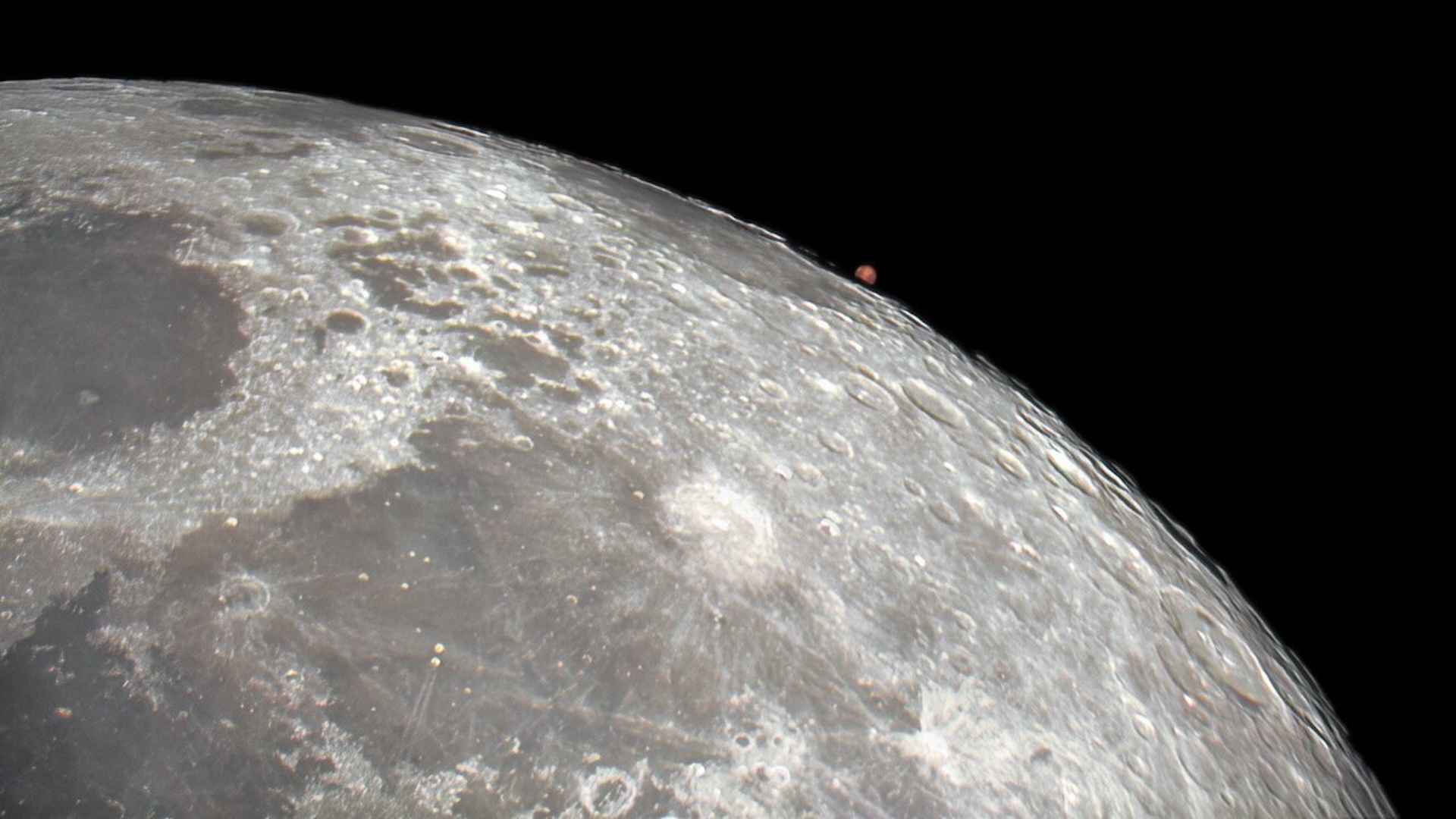Zoo monkey eats her baby's corpse after carrying it around for days
The mother repeatedly tried to catch the dead infant's gaze before throwing the corpse around her enclosure and eventually devouring it.
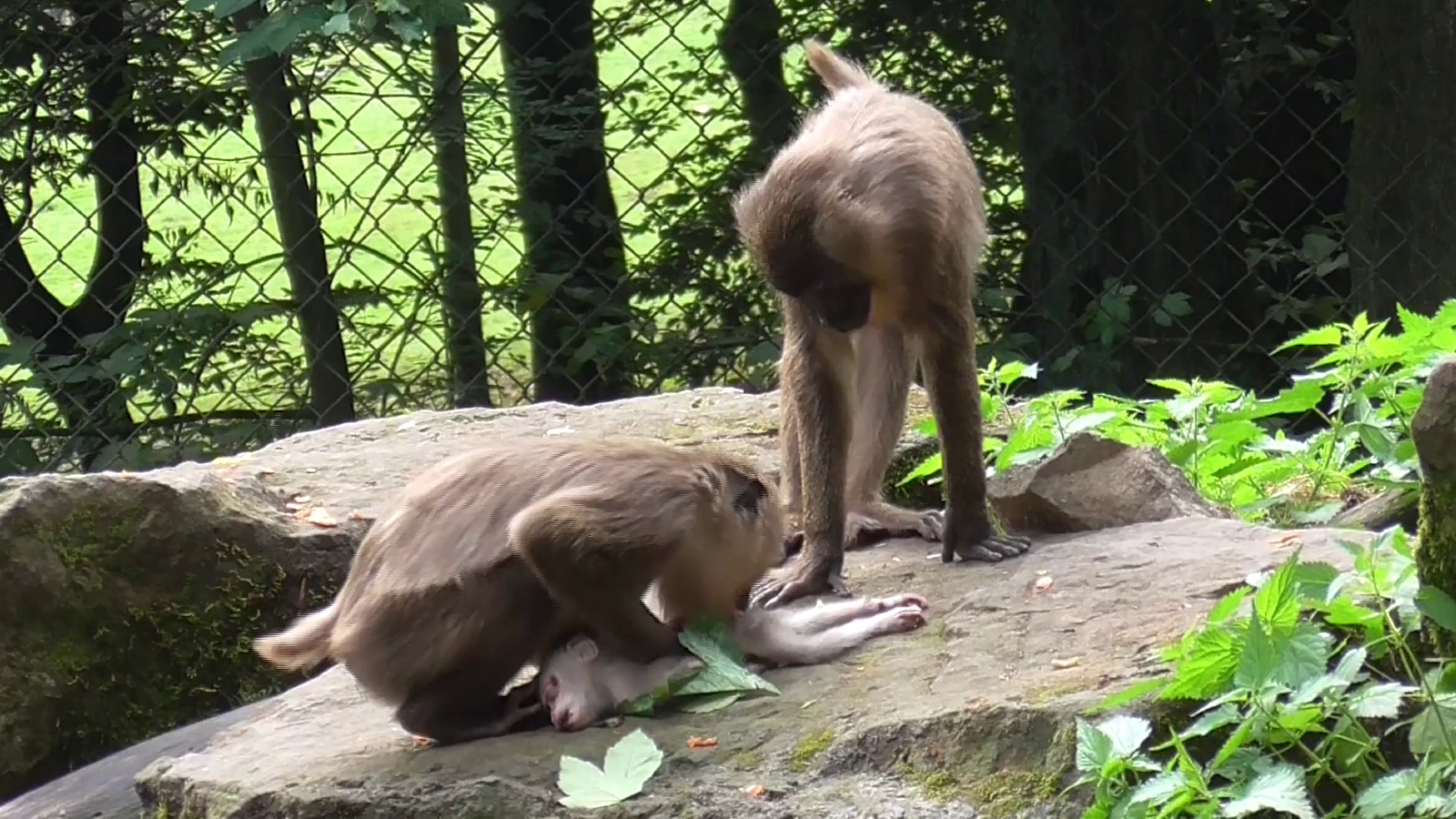
A monkey from a zoo in Europe was recently seen carrying around her baby's corpse for several days after it died. Then she devoured her own child. The mother's unusual actions may improve her chances of having another child in the future, experts say.
In August 2020, the female drill (Mandrillus leucophaeus), named Kumasi, gave birth to a son at the Dvůr Králové safari park in the Czech Republic. But eight days later, the infant died — the cause of death was never determined but the infant was not deemed to be in poor health when it was born.
Kumasi carried her child's corpse around her enclosure for almost two days and prevented keepers from removing the body, potentially in denial that her offspring had died. But toward the end of the second day, things turned ugly as Kumasi began eating her dead baby. She had ingested most of the remains before the body was eventually removed; no other monkey in the enclosure ate any of the remains.
Researchers who were studying the drill troop recorded the entire ordeal. The team described the grim event in a new study published June 27 in the journal Primates. The paper includes videos of Kumasi carrying around and eating her child. (Warning: Some people may find these clips distressing.)
It is not clear exactly how many times infant cannibalism has been documented, but it is "very rare," said study co-author Elisabetta Palagi, a primate biologist at the University of Pisa in Italy. "In scientific literature, you can find only anecdotal reports," she told Live Science This makes the recent incident of infant cannibalism one of the most well-studied cases to date, she added.
Related: Albino chimp baby murdered by its elders days after rare sighting
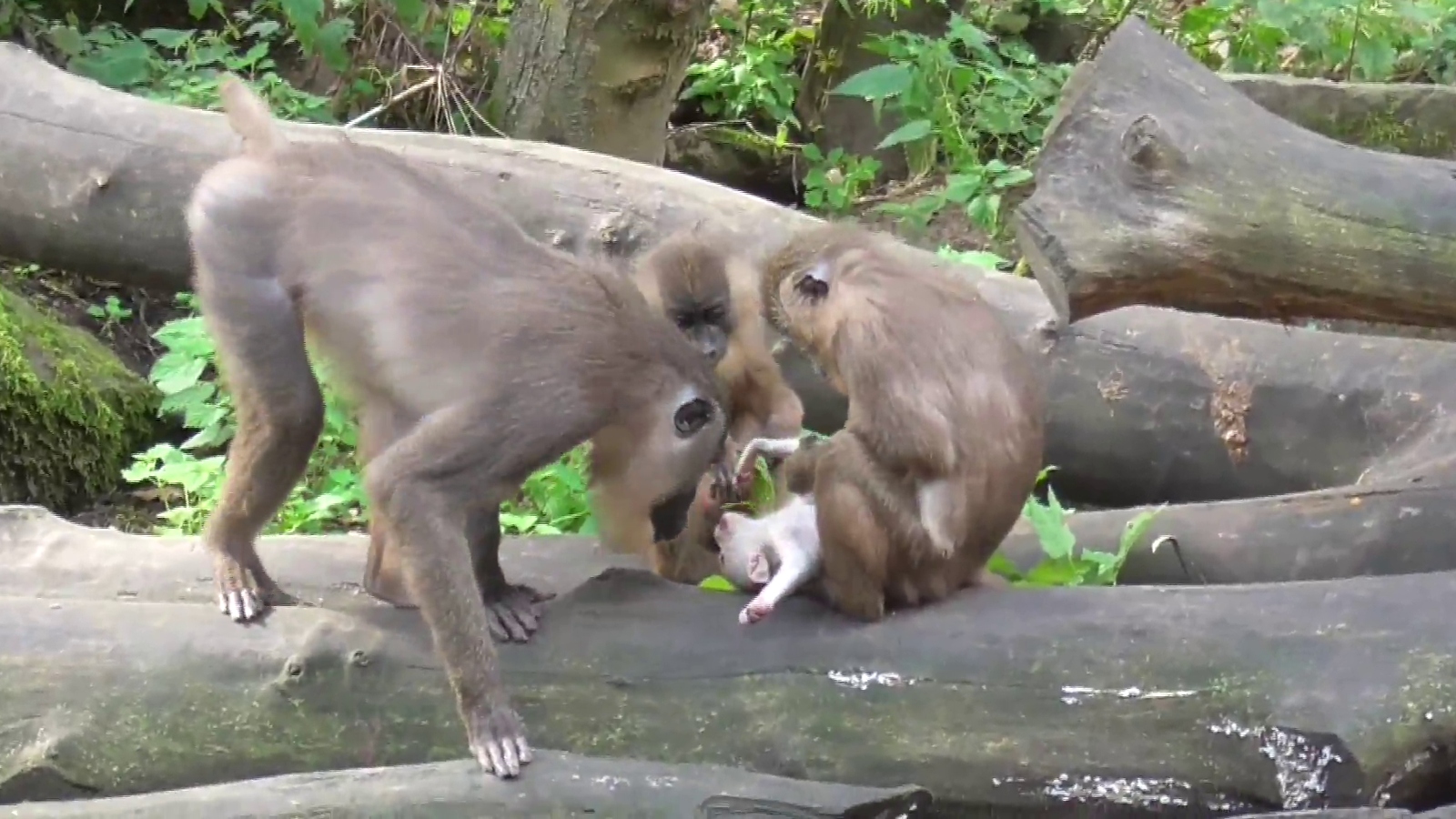
In the days after the infant died, Kumasi kept her infant close to her as other members of the troop came to inspect the child's lifeless body. The mother may have been grieving for her child, but the researchers suspect that she may actually have been unsure or unwilling to accept that he was dead.
Sign up for the Live Science daily newsletter now
Get the world’s most fascinating discoveries delivered straight to your inbox.
Kumasi continually put her face in front of the corpse's eyeline as if trying to engage her baby's gaze. "Monkeys and apes often inspect the face of their dead babies like this, possibly to perceive the eye movements," Palagi said. "When the mothers do not receive any feedback from the baby, it probably means that something is going wrong."
As time went on and she got no response, Kumasi grew restless and began dragging and throwing the corpse around the enclosure. What followed next, from a human point of view, was a horrific act, but the researchers believe that Kumasi had good reason to devour her dead son.
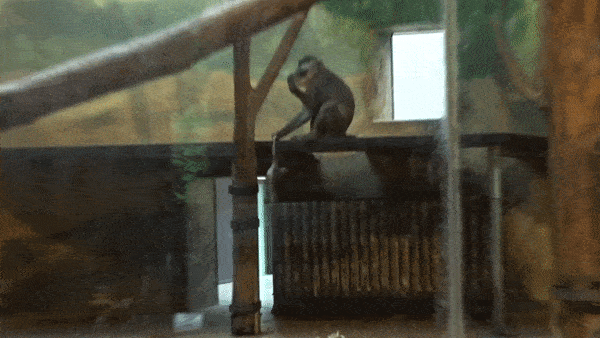
"If we consider the incredible reproductive energy investment of primate mothers, cannibalism can be considered an adaptive evolutionary trait that helps the mother to recover energy after gestation," Palagi said. This could increase her chances of reproductive success in the future, she added.
"The fact that the mother did not share the carcass with other group members supports the hypothesis of the nutritional benefit of cannibalism," Palagi said, because the others were not in need of the additional nutrients.
This is not the first time infant cannibalism has been explained as a way to increase reproductive success. In 2019, researchers observing a population of white-faced capuchin monkeys (Cebus imitator) in a national park in Costa Rica witnessed a female eating the remains of an infant that had died after falling from a tree. The female was not the infant's mother, but she did give birth two weeks later, suggesting she only turned to cannibalism to gain extra nutrients for her own offspring.
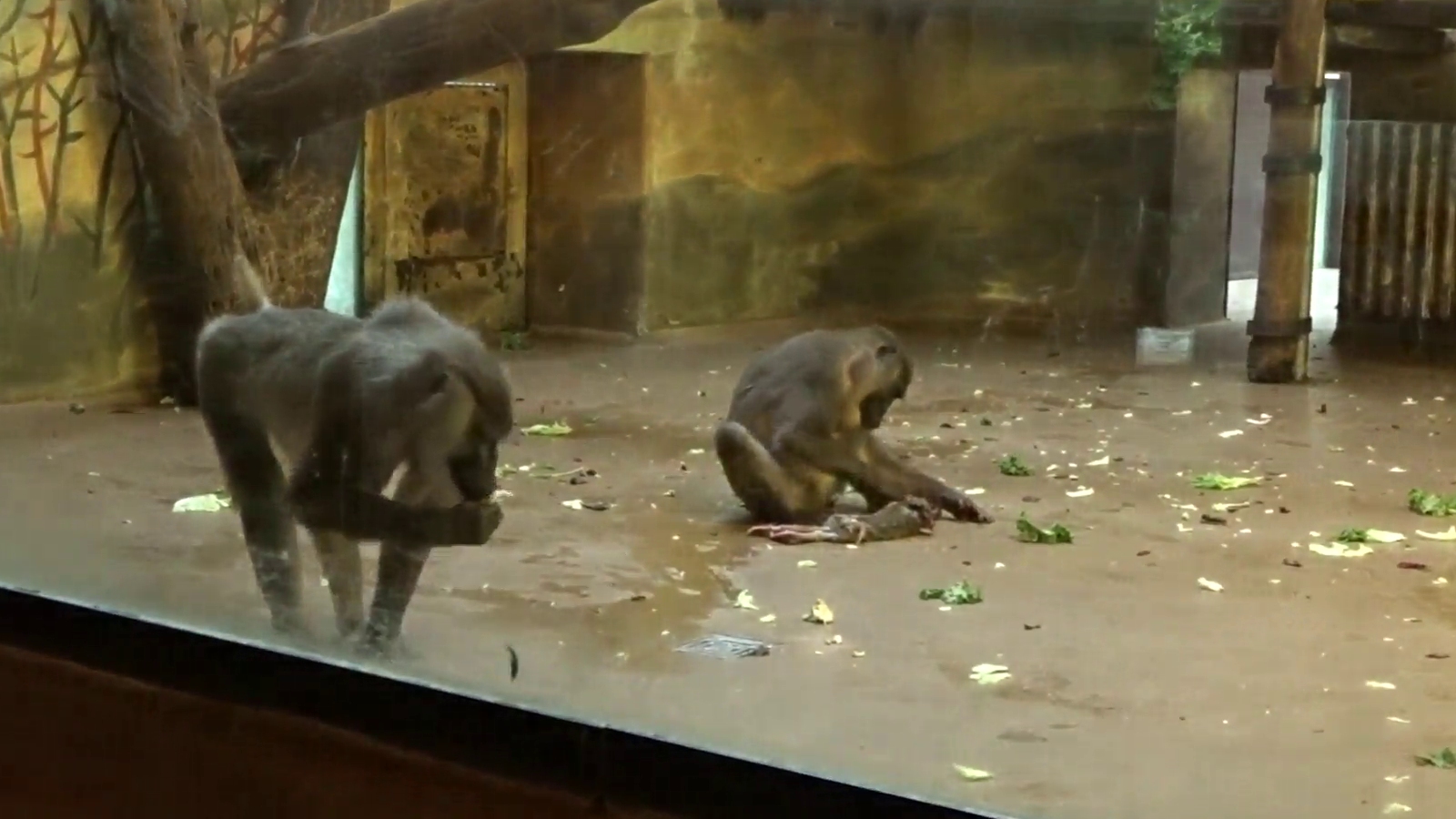
The researchers of the recent study believe the baby drill's age could have also played a role in it being eaten. "The younger the baby, the less likely the mother-infant attachment has become sufficiently strong to prevent maternal cannibalism on the dead infant," Palagi said.
But the researchers do not believe the monkeys' captivity played a role in the death of the infant or the cannibalism from the mother, as the zoo takes efforts to make the monkeys' lives engaging, researchers said.
And this effort extends to other primates in the safari park. For instance, in 2021, keepers set up a large screen in the chimp enclosure to enable the apes to face-time with other chimps living in another Czech zoo in Brno. The virtual meeting was set up to help replace social interactions with visitors that had been kept away by the COVID-19 pandemic and proved very popular with the chimps.

Harry is a U.K.-based senior staff writer at Live Science. He studied marine biology at the University of Exeter before training to become a journalist. He covers a wide range of topics including space exploration, planetary science, space weather, climate change, animal behavior and paleontology. His recent work on the solar maximum won "best space submission" at the 2024 Aerospace Media Awards and was shortlisted in the "top scoop" category at the NCTJ Awards for Excellence in 2023. He also writes Live Science's weekly Earth from space series.










